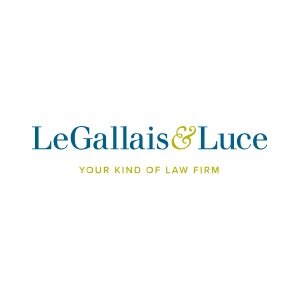Best Energy, Environment & ESG Lawyers in Saint Helier
Share your needs with us, get contacted by law firms.
Free. Takes 2 min.
List of the best lawyers in Saint Helier, Jersey
About Energy, Environment & ESG Law in Saint Helier, Jersey
Energy, Environment & ESG (Environmental, Social and Governance) law in Saint Helier, Jersey is an evolving field that addresses the legal frameworks governing energy production and use, environmental protection, and responsible business practices. The island of Jersey, while self-governing, aligns many of its policies with international standards and UK practices, yet retains its own statutory approach. With increasing global focus on sustainability, local businesses, property owners, and investors are paying closer attention to compliance and best practices in these areas.
Legal regulation covers issues such as licensing for energy generation, carbon emissions, waste management, pollution controls, conservation, sustainable development, and corporate responsibility in environmental and social matters. ESG combines these priorities, highlighting the expectations for businesses and organizations to demonstrate ethical governance and positive contributions to society and the environment.
Why You May Need a Lawyer
Engaging a lawyer with expertise in Energy, Environment & ESG law in Saint Helier can be crucial for a variety of reasons. Some common scenarios include:
- Seeking permission for energy projects, such as renewable energy installations or changes to existing utilities.
- Navigating environmental restrictions related to property development, agricultural projects, or business operations.
- Conducting environmental due diligence for mergers, acquisitions, or investments.
- Responding to regulatory investigations or enforcement actions related to pollution, waste disposal, or other violations.
- Complying with new ESG reporting and disclosure requirements for publicly traded or large private companies.
- Dealing with disputes over environmental damage, land use, or carbon credits.
- Advising on steps to enhance sustainability, meet corporate social responsibility goals, or integrate ESG criteria into overall business strategy.
Local Laws Overview
Jersey’s legal landscape incorporates several statutes and regulatory schemes relevant to Energy, Environment & ESG:
- Energy: The island’s electricity supply and regulation of renewables fall under local legislation, including licensing requirements for energy providers and safety standards.
- Environmental Protection: Laws such as the Waste Management (Jersey) Law, Water Pollution (Jersey) Law, Clean Air (Jersey) Law, and Planning and Building (Jersey) Law set out obligations to prevent pollution, manage waste responsibly, protect water resources, and safeguard scenic and historic sites.
- Environmental Impact Assessments: Environmental assessments may be mandatory as part of the planning process for new developments or expansions, especially where there is potential for significant impacts.
- ESG Disclosure and Reporting: While Jersey’s requirements are influenced by international standards, local businesses may face additional contractual or governance obligations to disclose transparent environmental and social practices, particularly for financial services and listed companies.
- Enforcement and Sanctions: Breaches of environmental law or failures in governance can lead to fines, mandatory remediation, or criminal liability in severe cases.
Given the island’s size and its international economic reputation, Jersey places a high emphasis on proactive compliance and environmental stewardship in both public and private sector activities.
Frequently Asked Questions
What is ESG and why does it matter in Jersey?
ESG stands for Environmental, Social, and Governance. It refers to a set of standards for how companies operate responsibly and sustainably. In Jersey, ESG is important due to regulatory developments, reputation management, and growing investor demand for responsible practices.
Are there specific laws in Jersey regulating renewable energy?
Yes, Jersey has its own legal framework for electricity generation and renewable energy development. Installation of solar panels or wind turbines often requires local planning permission and compliance with safety codes.
Do all development projects require an environmental impact assessment?
Not all projects require an assessment, but those that are large, complex, or potentially harmful to the environment are likely to need one as part of the planning permission process.
What should I do if I am accused of an environmental offence?
If accused of an environmental offence such as pollution or illegal waste disposal, it is critical to seek legal advice promptly. Early intervention can help in responding appropriately and potentially mitigating penalties.
How does Jersey enforce environmental standards?
Jersey authorities enforce environmental laws through inspections, monitoring, and investigations. Breaches can result in notices, fines, compulsory remediation, or prosecution.
What ESG reporting is required for entities in Saint Helier?
Requirements may vary based on the size, sector, and regulatory status of the entity. Financial services businesses and listed companies face more robust obligations, but all organizations are encouraged to adopt transparent ESG reporting practices.
Can private landowners be held responsible for environmental damage?
Yes, landowners can be liable for environmental damage caused by activities on their property, even if the actions were carried out by tenants or contractors.
Is there government support for energy efficiency or renewables?
Jersey encourages sustainable energy through incentives, grants, and information campaigns, although the availability of financial support may fluctuate. Legal compliance remains a prerequisite for accessing such programs.
How can my business integrate ESG principles?
Businesses can integrate ESG principles by reviewing current operations, adopting sustainability goals, implementing ethical labor and governance practices, and disclosing achievements and risks to stakeholders.
What happens if a company fails to comply with ESG or environmental requirements?
Non-compliance can lead to legal penalties, loss of contracts or licenses, reputational damage, or increased scrutiny from regulators and stakeholders.
Additional Resources
If you need further information or assistance, the following resources can be valuable:
- Government of Jersey - Department of the Environment
- Jersey Electricity Company
- Jersey Financial Services Commission (for ESG disclosures in finance)
- Jersey Energy Forum
- Jersey Chamber of Commerce Environmental Group
- Local legal firms with specialist energy and environmental teams
- Relevant international standards bodies (such as ISO and the United Nations Sustainable Development Goals)
Next Steps
If you believe you require legal guidance in energy, environment or ESG matters in Saint Helier, the best course of action is:
- Identify the specific issue or challenge you are facing and gather all relevant documentation or background information.
- Contact a local law firm or specialist that has experience with energy, environmental, or ESG regulations in Jersey.
- Prepare to discuss your circumstances and objectives in detail during your consultation.
- Consider ongoing compliance needs as well as immediate issues, as Jersey’s framework continues to evolve.
- Stay informed by following updates from governmental and industry bodies related to energy and environmental policy.
Engaging with professional advice early can help you navigate complexities, manage risks, and operate responsibly within Jersey’s regulatory landscape.
Lawzana helps you find the best lawyers and law firms in Saint Helier through a curated and pre-screened list of qualified legal professionals. Our platform offers rankings and detailed profiles of attorneys and law firms, allowing you to compare based on practice areas, including Energy, Environment & ESG, experience, and client feedback.
Each profile includes a description of the firm's areas of practice, client reviews, team members and partners, year of establishment, spoken languages, office locations, contact information, social media presence, and any published articles or resources. Most firms on our platform speak English and are experienced in both local and international legal matters.
Get a quote from top-rated law firms in Saint Helier, Jersey — quickly, securely, and without unnecessary hassle.
Disclaimer:
The information provided on this page is for general informational purposes only and does not constitute legal advice. While we strive to ensure the accuracy and relevance of the content, legal information may change over time, and interpretations of the law can vary. You should always consult with a qualified legal professional for advice specific to your situation.
We disclaim all liability for actions taken or not taken based on the content of this page. If you believe any information is incorrect or outdated, please contact us, and we will review and update it where appropriate.
Browse energy, environment & esg law firms by service in Saint Helier, Jersey
Saint Helier, Jersey Attorneys in related practice areas.











